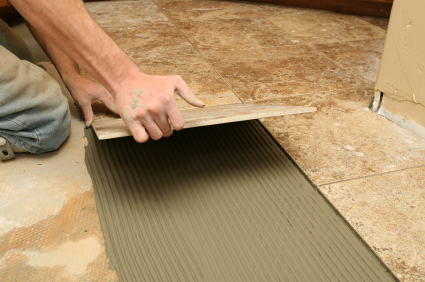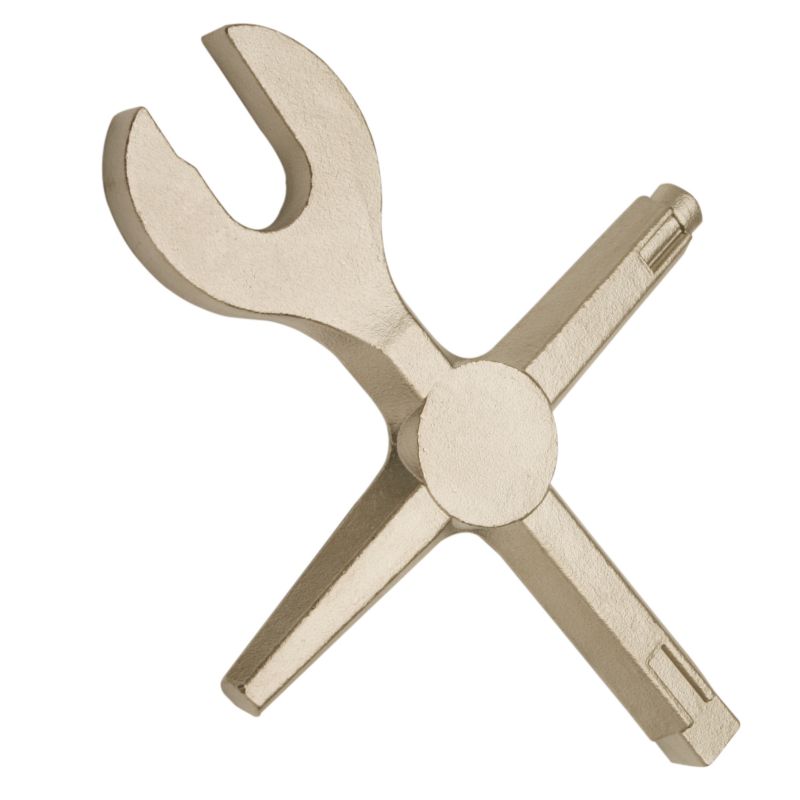You’ve completed all the required plumbing courses, you’ve gathered years of great experience, you’ve established yourself as a true professional and identified your client base – at last you’re ready to start your plumbing business. But what do you call it?
Of course you could go down the simple route. Your name with the word “plumbing” after it is a tried and tested solution, but it doesn’t really stand out, does it? A.B. Plumbing, Dave Pryor Plumbing, B & R Plumbers – not very inspiring and hardly likely to keep your business in the minds of past and future customers…
So how do you come up with a great name for your plumbing business which helps you stand out but also makes sure your customers take you seriously?
It can be extremely tempting to go down the plumbing pun route, but this could throw a spanner in the works and suggest to customers that they will be throwing money down the drain on a plumber who isn’t going to have an altogether professional approach to their plumbing problem. Yet a pun or joke can make your business both memorable and friendly, so if you can come up with a good one it might be worth a shot! Be careful though, many plumbing puns have been done (and done badly) before…
• Round the Bend Plumbing
• Plumb Role Plumbing
• Plumbing the Depths
• Royal Flush Plumbing
• Straight Flush Plumbing
• Go with the Flow Plumbing
• Pipe Dream Plumbing
• Flushed with Success Plumbing
Yes, we know, they’re terrible. The problem with a ‘punny’ plumbing name is that it has to be genuinely funny for it to work and very few of them actually are…
When it comes to setting up after your plumbing courses, you can judge your trade name ideas for your plumbing business by asking yourself a few questions:
1. Does it accurately convey what you do?
2. Does it portray your business in a positive light?
3. Does it help you stand out from the crowd?
If the answer to any of these questions is ‘no’, it might be time to return to the drawing board…
If you’re yet to embark on your plumbing path, the first step is to get some great plumbing courses under your belt. Access offer flexible, future-oriented plumbing courses which will thoroughly equip you for your future career, wherever you are in the UK and however you want to learn. For more information about Access’s plumbing courses call their team today on 0800 345 7492.
If you’re looking to find work in the plastering business there are many ways you can find opportunities in the construction industry. Plastering is a skill that will always be in high demand and often the best way to learn a trade is with on the job training. However, those serious about plastering as a trade might want to look into one of the many plastering training courses available.
Working as a plasterer can be quite a lucrative career that provides a steady income and lots of work. Whether you find with a plastering firm or a firm that includes plastering in its range of services, you should find your skills are constantly in demand. You may also find that once you have been working in the trade for some time and have acquired extensive experience, you might want to go it alone and set up your own plastering business.
Get the Word Out
Plastering jobs are often obtained through word of mouth and speaking to other contractors. If you can get the word out that you are looking for work and that you are willing to work long hours and dedicate your time to learning the trade, you may find a job comes along quicker than expected. You may also want to enquire directly to construction site managers and tell them that you have some level of training or that you are willing to train on the job. Whilst you might get given light labourer duties at first, you can learn a lot by being on site and getting involved. If you can get yourself on a new-build construction site this is one of the best ways to learn more about the plastering and rendering skills you will be required to know.
Your local job centre will also have details of any plastering jobs in your area and also any training courses on offer. Grants are often available for training and you’ll learn everything you need to start plastering straight away. The good thing to know is that plasterers are always in demand. If you can prove your skills and your worth, you’ll find your phone constantly ringing with offers of work.
Fine Tune Your Skills
Plasterers often add other strings to their bow including painting, tiling and flooring. Many domestic clients will be looking for a tradesman that has a wide range of skills so taking the time to learn new trades will open up many more doors to you.
It’s time to say goodbye to knot tying, stamp collecting and campfire building – the Scouts are now chasing down a new generation of badges for their uniforms. From P.R. and plumbing training to electrical rewiring and aeronautics, Scouts “2.0” are now offering awards in hands-on practical life skills which will equip their members for working life, apprenticeships and University.
It appears that it isn’t necessarily scout leaders who are pushing these changes – the numbers of scouts choosing practical awards like plumbing training, compared to the numbers choosing to pursue more traditional badges for activities like angling, are very revealing. There seems to be real drive amongst young scouts to gather skills which will set them in good stead in their adult lives.
Here are a few revealing figures from the latest data:
- 42,888 I.T. badges were awarded to beavers, cubs and scouts in 2011
- 10,750 fire safety badges were awarded to scouts over the last year
- Just 588 caving badges and 962 angling badges were awarded to scouts in the same period
Whilst it’s great to see young people taking control of their own futures, some may feel nostalgic for the days when being a scout was all about fun, wholesome outdoors activities like orienteering, hill walking and camping. Whilst it’s absolutely great to get a head start with your career and really explore your options, there is plenty of time to enrol on plumbing training courses or pursue a career in P.R..
Interestingly, 2011 was also the year in which the number of new female scouts exceeded the male scouts. 4,330 new girl scouts were enrolled last year, compared to 3,796 new boy scouts. It is tempting to see this as a real positive change which could have great consequences for equality and diversity in the once male-dominated trades.
If you’re a little too old for the scouts and want to really make a good start on a plumbing training course, Access Training offer flexible, City & Guilds accredited plumbing training to equip you for a bright future as plumber. If you’d like to learn more about our plumbing training, please browse the rest of the website or call our knowledgeable team on 0800 345 7492 today.
HM Revenue & Customs (HMRC) are continuing their crackdown on tax evasion and are still focusing with real intensity on those who have completed plumber and electrician training courses. It may seem unfair and particularly vicious, especially given the level of tax evasion that goes on surrounding big money and big business, yet during the crackdown, serious levels of tax evasion have been uncovered.
This week West Midlands plumber David Williams was jailed for evading £91,000 of income tax and national insurance, justifying the high level of attention being given to the tax situation of plumbers, heating engineers, electricians and gas fitters.
The shocking level of tax evaded by Mr Williams over his 10 year career as a self-employed plumber does absolutely no favours for the industry or for the good names of those in the plumbing profession. According to HMRC, nine other plumbers have placed under arrest whilst investigations into their financial situations continue.
It is a real shame that the greedy practices of a few individuals are now injuring the reputation of other alumni from plumber and electrician training courses. This seems to be one of the most widely publicised HMRC campaigns – their 2011 crackdowns on medical professionals, companies evading VAT, offshore investments and private tutors do not seem to have warranted as much national attention.
If you are concerned about your tax situation, HMRC are now implementing a “disclosure opportunity”. Many tax issues are unintentional and these are the issues the tax man is hoping to confront. They are encouraging plumbers and electricians who have unintentionally (or otherwise) not paid their tax correctly to now come forward. If they do they will be hit with a severely reduced penalty rate – 10-20% of the tax owed. In comparison to the usual 100% rate that could affect them later, this is a real incentive to get your finances in order.
All good plumber and electrician training should equip its alumni for working life in their profession – this includes handling their finances. If you are considering beginning plumber or electrician training, ensure you select a course which will give you all the skills you need for a successful career. Here at Access we are proud to provide comprehensive plumber and electrician training. To find out more about our courses please browse the rest of the site or call 0800 345 7492 today.
Fresh research in the Builders and Plumbers’ Merchants’ Market report shows that it is still a great time to begin plumbing training. Many candidates may have been nervous about entering a career and starting plumbing training during a time of economic turbulence, yet these new facts and figures show that, despite a downturn when the recession bit, the plumbing industry is still flourishing. In fact in 2010 the market recovered and this recovery has held firm throughout 2011.
The report also highlighted many things which prospective plumbing training candidates should know about before entering their trade. More so than ever before, the plumbing industry is directly influenced by how well the UK building and construction sectors perform. When times are hard for those involved in new-build, maintenance, improvement and repair projects, plumbers are likely to suffer too.
It appears that the old beliefs about plumbing still hold true, even when times are hard. If you have a good trade under your belt, you could well find that you are in demand even when money is tight across the country. If you are considering enrolling on a plumbing training course, it looks like this really in a trade for life.
To learn more about the plumbing industry, or to enrol on a high-quality City & Guilds acreddited plumbing training course, get in touch with Access today. Their experts understand the industry inside out and offer courses designed to equip budding plumbers with the skills they need to work in the trades in the 21st century. Access plumbing training courses are both flexible and highly regarded, to find out more browse the rest of the website or contact their team today on 0800 345 7492.
You might already have heard of the great trade shortage in the UK. Tilers are especially in short supply with more and more school-leavers and job seekers favouring office or retail jobs over manual jobs. However, tiling is an excellent way to make a living and could pave the way to owning your own business and working for yourself.
There are many tiling courses available including an NVQ in floor and wall tiling. Of course, nothing can match experience and skill when it comes to learning a trade, but a good qualification shows you have spent the time mastering your art and learning in a classroom environment. This is a great way to learn, discuss the trade with others, and to get expert advice from a professional tutor with experience of the trade and also the industry.

The life of a tiler can be very varied. One week they might be fitting wall tiles in a bathroom or floor tiles in a retail outlet. That’s the beauty of a trade like this. The work will always be different and therefore you’ll pick up many more skills in a short space of time. Tiling courses can teach you a lot of these skills, but it’s only when you get out into the real world that you start to learn new techniques that will stay with you for life.
Good tilers are surprisingly difficult to find which is why many building companies pay good money in order to hang onto their tiling experts. Not only do you have to be good with cutting and fitting tiles, but you also need to know all there is to know about preparation and calculating how many tiles you need and where they are going to go. You will also need to be good at levelling off plaster and applying grout. These are all basic skills, but you might also want to add to your skills by taking tiling courses that teach you how to plaster a wall or lay cement on a floor. The more skills you have under your belt the more valuable you will be to an employer.
What you need to be a good tiler:
• Excellent practical skills – there are many tiling courses that can get you off to a good start
• An accurate and methodical way of working
• Good numerical skills – you’ll be measuring and calculating materials and surfaces
• Have creative flair (although this isn’t always essential) and be able to match patterns and colours
• Be comfortable following technical diagrams and plans
• Be fit and able to carry heavy tools such as tile cutters and bags of grout
• Be confident working as part of a team or on your own
• Be comfortable talking to clients in their own home or offices
• If you are going to go self-employed you will need to keep your accounts and paperwork in order
Here at Access Training, we offer comprehensive tiling courses which will help you pave your way to your new profession. Our tiling courses are both thorough and flexible, allowing you to learn all you need to know, in a way that suits you. To find out more, please get in touch on 0800 345 7492 today.

Following draft license modifications put before Parliament and a ruling from the Court of Appeal, solar PV systems will be eligible for the higher Feed in Tariff (FIT) rate. That means that domestic solar PV systems that are registered with a FIT provider before 3rd March 2012 will be eligible for a Feed in Tariff rate of 43.4/kWh.
Not prepared to accept the change, the DECC (Department of Energy & Climate Change) has indicated they will follow this ruling up by seeking permission to appeal to the Supreme Court. If the DECC is successful in the appeal process, this could herald yet more changes.
The current rates available to domestic solar PV customers are as follows:
- If customers register their solar PV installation before 3rd March 2012, they will be eligible for a FIT rate of 43.3p for each unit of power they generate and 3.1p for each unit of power that they export to the National Grid
- Customers registering from the 3rd March – 31st March will be eligible for a FIT tariff of 43.3p for every unit of power they generate up until the 1st April 2012. Any power generated after that date will be eligible for a rate of 21p for each unit.
- Between 1st April and 30th June, the Government proposes to give 21p for each unit of power generated and 3.1p for each unit that is sent back to the National Grid.
There’s never been a better time to consider solar PV for the home and you may indeed have seen more and more homes with solar panels fitted. In order to have solar PV panels fitted, your home will need to meet a minimum energy efficiency standard and that means you’ll have to acquire an Energy Performance Certificate (EPC) rating of ‘D’ or higher. Further reductions are proposed to the FIT rate in the future and these changes could be in place by 1st July 2012.
More and more people in the UK are starting to realise the benefits of generating their own energy and the changes to the FIT rate make installation look much more appealing. Solar PV panels are becoming less and less expensive and therefore more accessible to UK homeowners. In order to be eligible for solar PV you must own your own property in England or Wales and have your own mains electricity supply.
Renewable and sustainable energy seems to be high on the agenda in Parliament right now and there’s never been a better or more affordable time to tap into the sustainable energy market. Reduce your carbon footprint and your energy bills at the same time.
With the rising demand for solar comes a rise in the number of solar installers required in the UK. Access Training specialise in helping people find their vocation, whether that's plastering or solar PV. To find out more about how to begin training, browse the rest of the website or call the knowledgable Access team on 0800 345 7492.
Training to be a plumber is no walk in the park, no matter what the economic climate is up to. However, in recent years, training to be a plumber has become even harder thanks to the lack of apprenticeships and work placements around. There are a number of reasons why these opportunities are so thin on the ground and sadly money is at the heart of all of them.
Many plumbers just do not have the money to take on an apprentice as the majority are currently self-employed and facing a somewhat uncertain future in terms of workload. Even though many county councils offer generous grants to help plumbers pay for apprentices, many experienced plumbers simply do not have the time and energy to help youngsters who are training to be a plumber. On top of all this there is the worry that younger blood in the plumbing industry will force out the more experienced members of the profession, leading to even fewer available jobs.
This is all very problematic. An apprenticeship and on the job learning are significant parts of training to be a plumber and, without this kind of experience, many students will be unable to qualify. This is one reason that Grimsby’s young William Bradley has taken matters into his own hands…
Rather than make endless, disappointing phone calls, 15 year old William has taken the initiative. After creating a special board reading:
‘PLUMBING & HEATING
APPRENTICESHIP
WANTED
I’M READY TO GO’
he has taken a prime position outside his local Plumbing Trade Supplies centre and is handing out his card to sympathetic passers-by. He has been met by support and many people have been impressed by his pro-active approach to getting into training to be a plumber. According to one local: “I was a plumber for 18 years and I can say that it is a hard trade to break into.”

Here at Access we wish William all the best. As a top training provider we know how difficult training to be a plumber can be – especially when apprenticeship opportunities are thin on the ground. If you are looking into training to be a plumber and finding it difficult to get an apprenticeship, speak to our knowledgeable team here at Access Training. A number of our courses allow you to bypass the apprenticeship requirement and take this stress out of training to be a plumber. For more information call today on 0800 345 7492.
Renewable energy is proving to be a great direction for many of our graduates here at Access Training. Whether you have completed electrician courses or plumbing courses, your skills are needed in the renewable energy sector, where going Green is now big business. With great government schemes in place and renewable energy targets to meet, increasing numbers of projects involving solar panels, wind turbines and alternative renewable energy sources are springing up across England and Wales.
 As fantastic as this is for local economies and our electrician courses graduates, renewable energy projects are not without contention. As popular as they are with environmentalists and those looking to boost local jobs, wind turbine projects are loathed by locals who believe that such projects will tarnish and ruin natural landscapes.
As fantastic as this is for local economies and our electrician courses graduates, renewable energy projects are not without contention. As popular as they are with environmentalists and those looking to boost local jobs, wind turbine projects are loathed by locals who believe that such projects will tarnish and ruin natural landscapes.
This year more than 100 wind turbines are set to be built across North Wales, with a substantial number planned for Anglesey. The 40 planned wind turbines on the island are proving particularly contentious, especially since many of these turbines will be over 330ft high. Those who oppose these plans are concerned that their erection will mar the landscape, industrialising Anglesey’s natural landscape and reducing revenue from tourism.
This is not a dispute which is likely to be solved easily. There are many strong arguments from both sides of the fence, yet more wind turbines means more apprenticeships, work and a bright future for those with excellent trade skills after completing training on electrician courses and gaining expert trade skills in a range of areas. This is especially important in a period of recession and high levels of unemployment. For those with an environmental conscience, these turbines will make a vital contribution to Wale’s plans to become self-sufficient on renewable energy by 2050.
If you’d like to learn more about how to use Access electrician courses, plumbing courses and many forward-thinking modules to get into the booming renewable energy sector, call our experienced team today on 0800 345 7492 for top advice from the training experts.